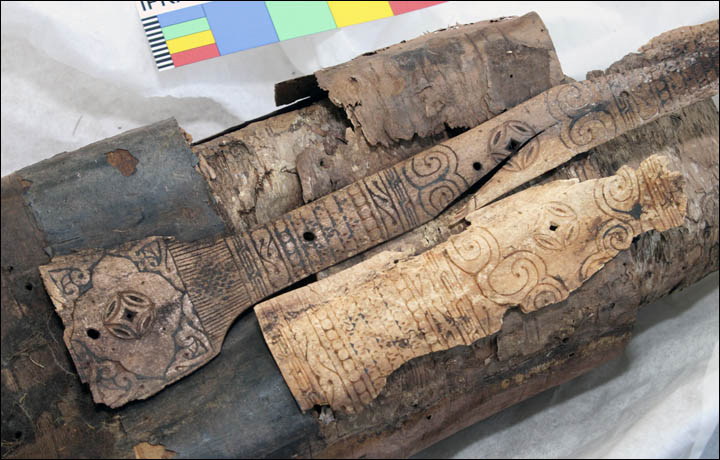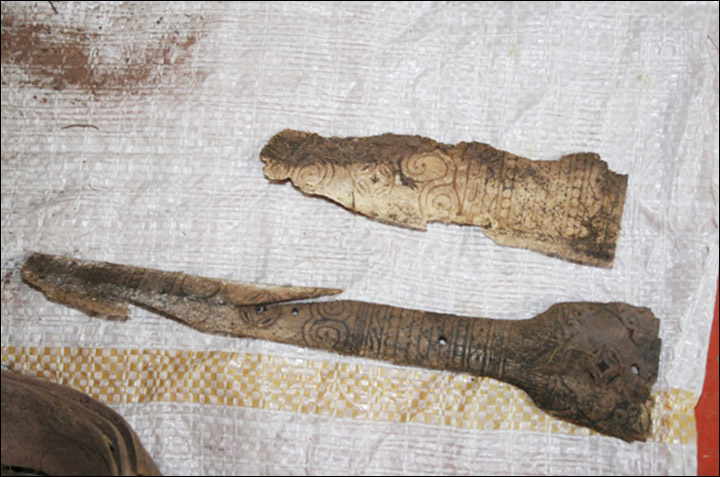At http://siberiantimes.com/science/others/news/n0782-burial-site-of-siberi… … it seems the Altai region is turning up a lot of archaeology – and is disseminating it through this excellent web site. In this post we have the find of an archer of renown – supplied in the afterlife with his arrows, and quiver …


Robin Hood is a myth or legend derived from the Anglo Saxon god Woden but applied to medieval events in the 12th and 13th centuries (or that is one theory). In the McCarthy era an American author came to Britain and he wrote a TV series on Robin Hood, a sort of Marxist hero – robbing the rich to give to the poor. That is of course complete make believe and a political piece of propaganda that must have influenced a generation of children. There is no evidence that Robin Hood or any known figure from the medieval period went around robbing fat friars to provide victuals for the peasants – but it is not impossible. However, the situation in the medieval period is that marginalised peasants became outlaws and lived in places such as common land or parish waste and no doubt preyed on merchants and ecclesiastics – and on more easier targets, their fellow peasants. Peasants themselves were tied to landowners and this would have deterred miscreants from having anything to do with them – although in the 14th century the climate had deteriorated into a series of extremely wet years that ruined crops in the field and caused hardship amongst peasants. Widespread famine led to starvation and this situation appears to be mirrored in some of the events from the reign of King John. Hence, there is a factual side to the Robin Hood tales and the dispossessed included members of the elite out of favour (such as illustrated in the story of Robin of Loxley) and a general mish mash as the Normans had dispossessed A/S nobles somewhat earlier (which included A/S clergy as well). The Robin Hood stories appear to include elements from the 11th to 14th centuries (without going as far as the Black Death) when the underclass were ruled by a French speaking elite (including a French clergy). This why the tales have resonated down the centuries – not because of Marxist values. In spite of that the idea of robbing the rich to give to the poor also struck a chord in Communist Russia. Robin Hood became popular – hence the application of the term to an ancient burial, probably that of a Mongolian (regarded as persecutors of Russian peasants). It is strange the way words and concepts are bandied around. The Mongols conquered the Altai region in the 12th century (at the same time as the Robin Hood legend was in flux in England) and the local population assimilated or were destroyed. In England the peasants knuckled down under a different elite – one that spoke a different language. In other words, most peasants assimilated to the Norman yoke (just as they did in the Altai) but some of them were forced to live outside society (and no doubt this occurred in the Altai too). The body in the coffin was a Mongol – which is intriguing as the Mongols went on to conquer the steppe zone, virtually decimating it by selling the peasants into slavery in the Islamic world. Moscow and the northern region also became part of the Mongol empire – which later retracted as a result of the late 14th century epidemic (the plague). The Russian kingdom was reinvigorated but the Ukraine remained a devastated and poorly populated zone until some time afterwards, continuing as a resource for slaves that were traded by the Tartars ensconced in the Crimea with the Ottomans on the other side of the Black Sea. A Russian Robin Hood, one might imagine, would have opposed the Mongols (rather like Robin Hood in England whom invariably fights the Norman overlords, such as the Sheriff of Nottingham). We may assume the authorities in the Communist period saw the Robin Hood story (possibly even the same TV series but dubbed into Russian) as useful propaganda to feed the plebs. In the UK it was screened for a similar reason – but not perhaps at the instigation of the political elite of the time.
